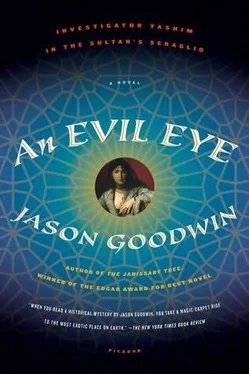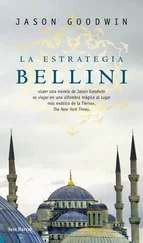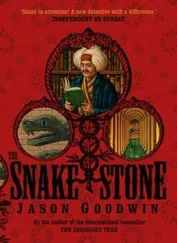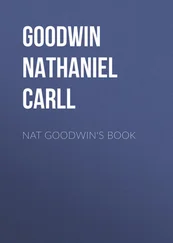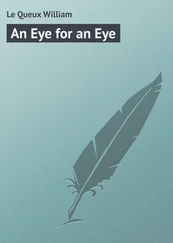Jason Goodwin - An Evil eye
Здесь есть возможность читать онлайн «Jason Goodwin - An Evil eye» весь текст электронной книги совершенно бесплатно (целиком полную версию без сокращений). В некоторых случаях можно слушать аудио, скачать через торрент в формате fb2 и присутствует краткое содержание. Жанр: Исторический детектив, на английском языке. Описание произведения, (предисловие) а так же отзывы посетителей доступны на портале библиотеки ЛибКат.
- Название:An Evil eye
- Автор:
- Жанр:
- Год:неизвестен
- ISBN:нет данных
- Рейтинг книги:3 / 5. Голосов: 1
-
Избранное:Добавить в избранное
- Отзывы:
-
Ваша оценка:
- 60
- 1
- 2
- 3
- 4
- 5
An Evil eye: краткое содержание, описание и аннотация
Предлагаем к чтению аннотацию, описание, краткое содержание или предисловие (зависит от того, что написал сам автор книги «An Evil eye»). Если вы не нашли необходимую информацию о книге — напишите в комментариях, мы постараемся отыскать её.
An Evil eye — читать онлайн бесплатно полную книгу (весь текст) целиком
Ниже представлен текст книги, разбитый по страницам. Система сохранения места последней прочитанной страницы, позволяет с удобством читать онлайн бесплатно книгу «An Evil eye», без необходимости каждый раз заново искать на чём Вы остановились. Поставьте закладку, и сможете в любой момент перейти на страницу, на которой закончили чтение.
Интервал:
Закладка:
She dried herself carefully with a towel and picked up the shift, which she folded and laid on the bed.
She rummaged in the bags hanging against the walls, finding a pretty patterned jacket she didn’t recognize. She held it up. When she tried it on, it fitted well; she smoothed her hands down the sides and wished she had a mirror.
After a while she grew bored of staring out over the Topkapi rooftops. It was only in one corner, beyond a dome, that she could discern the outline of the land beyond: the Galata Tower and the trees of Taksim, where they kept the water.
134
The wind had dropped. On the Bosphorus, the water ran black and smooth; the waters of the Golden Horn were oiled like old steel. Sultan’s weather, they called it, for the official opening ceremony of the bridge.
It had snowed before dawn, and by midmorning, when the sun came out, most of the alleys and thoroughfares of the city were a laced tangle of mud and standing ice; the air was clear, and the skyline of the seven hills was picked out sharply against a cold blue sky.
The bridge cast a crisp black shadow on the water. Its planks were swept, and glistened darkly in the frosty air; its parapets were entwined with glossy leaves, with here and there a spray of yellow flowers.
Crowds thronged the shoreline on the Pera side, and spilled through the gates that opened in Istanbul’s Byzantine walls, their appetite whetted by the scent of roasted chestnuts and corncobs grilling on little fires. A man with long mustaches raked stuffed mussels over a brazier. The simit seller wandered through the crowd, with his distinctive bread rings on a tray on his head. The sherbet seller followed him, clinking two glasses between finger and thumb, and the water man, with his tank on his back. Boys darted through the crowd with roasted chickpeas in paper bags, and the sahlep men pushed their trolleys along the waterfront, offering their concoction of sweet orchid root sprinkled with ginger and cinnamon.
The kebab houses and the cafes were busy, and the frosty air was full of music, too, played by bands, by gypsies, by wandering musicians with bagpipes and flutes, stringed ouds and mandolins. A team of Africans who had arrived in the autumn were knocking out unfamiliar and catchy rhythms on their drums; gypsy girls were tinkling their tambourines; grave Sufis chanted the ninety-nine names of God, for charity.
In spite of the cold, Yashim could see that it was a larger crowd than had turned out for the accession of Abdulmecid only a few months before. That had been a more private affair, conducted swiftly upon the old sultan’s death in the presence of the Ottoman family, the sultan’s pashas and his slaves. The ceremonial opening of the bridge marked the sultan’s gift to the people of Istanbul, and it was generally understood that Abdulmecid would bring his ladies.
Cannon fire announced the departure of the sultan’s suite from Besiktas. Everyone turned expectantly to the water and watched the mouth of the Golden Horn; people leaned from balconies in Pera and crowded the crumbling walls of Istanbul.
The corps diplomatique, including the ambassadors of Russia, France, Britain, Austria, and the United States, was assembled in an edgy silence on the Pera side of the bridge. The Polish ambassador was there, too, looking tired but talking amiably to the Sardinian consul; his presence was noticed by certain members of the crowd. Only the junior members of the ambassadorial suites chatted and laughed among themselves.
“Admit it, Compston,” Count Esterhazy was saying as he waved a smoldering cigar. “The Ottomans have done it. They have built their bridge after all, and you fellows have lost the wager!”
George Compston adopted a mulish expression. “The bet says the sultan has to get across the bridge. Isn’t that right, Fizerly?”
“I grant you they built it,” Fizerly added. “But will it stand? That’s the question, Esterhazy.”
Esterhazy’s pale face betrayed the hint of a smile. “I think you will pay the forfeit, gentlemen. Look!”
A vermilion eight-oared caique appeared, flying brave pennants, carrying important dignitaries of the empire: the grand vizier, Husrev Pasha; the mufti of Istanbul; the military chiefs of Rumelia and Anatolia.
Behind it came the imperial caique itself, with young Abdulmecid and two veiled women; it was rowed by twelve men, who barked like dogs in the traditional manner, so that the sultan’s conversation would go unheard.
As the cavalcade approached along the Bosphorus, ships anchored in the roadstead dipped their colors. Six caiques, vermilion and eight-oared, bore the ladies, who turned their veiled heads regally this way and that, to appreciate the lively scene. Among them could be seen some of the harem children: little boys in silk jackets, little girls in furs.
The sultan’s caique passed momentarily from sight, then swept out of the shadows below the bridge and into the basin of the Golden Horn. The crowd began to chant its approval: “Hu! Hu!”
The third, then fourth caique slipped beneath the bridge. As its prow passed under the parapet, two garlanded caiques that had been milling in the lower basin shot forward and fell into flanking positions, one on each side of the caique as it went under the bridge.
Eight seconds later, straddling a crossbeam of the bridge’s superstructure, Erkan, the Strongest Man in the World, took hold of Kadri’s ankles and lowered the boy toward the water.
The ladies in the caique gasped as the swinging figure of a boy jostled against them. Then he was gone.
The caique shot out into the Golden Horn. The ladies looked about them, uncertain what had happened in the fifteen seconds it took them to go underneath the bridge. The rowers blinked-and kept on rowing, for there was nobody aboard to change their orders.
Invisible from the shore, Kadri, Erkan, and the little girl they had just snatched from the harem caique scuttled along the gantry below the planked surface of the bridge and made their way to the far side. The girl was lowered into a waiting caique. Low and black, it had not been spotted moored up against the pontoon.
Spyro the caiquejee twitched a blanket over Kadri and the little girl and applied himself to his oars. They came out from beneath the bridge, heading to the open water, as the last imperial caique emerged on the other side.
Erkan scrambled through the final span of the bridge and stepped onto land, where he was soon lost in the crowd.
Spyro rowed vigorously toward the Tophane stage. “There you are, princess,” he said, swinging her out of the caique.
Kadri took Roxelana by the hand.
She dragged slightly. “Where are we going?”
“Come on,” Kadri said. “I’ll race you up the hill.”
135
“ I think I feel a little better, Tulin, now.”
Tulin folded the shawl and laid it tenderly on the divan. “Yes, valide. I’m glad.”
“When this business of the bridge is over, would you send to the Kislar aga? I think he and I need a little talk.”
“Yes, valide. What do you want to talk about?”
The valide let her eyelids droop. “What about? Oh, your future, my dear. And mine, too.”
Tulin stood respectfully at the foot of the divan. “The Kislar aga is expecting us at Besiktas tomorrow, valide. Perhaps you should talk to him then?”
The valide cocked her head. “Tomorrow, is it? Tiens! Time flies so fast.”
“Yes, valide. Would you like a tisane, now?”
“No, thank you, my dear. I’m quite comfortable.” Her eyes roamed around the room she knew so well. “I’m very comfortable, right here. You’ll send for the Kislar aga, won’t you?”
Tulin turned to the fire and put another log on the blaze.
Читать дальшеИнтервал:
Закладка:
Похожие книги на «An Evil eye»
Представляем Вашему вниманию похожие книги на «An Evil eye» списком для выбора. Мы отобрали схожую по названию и смыслу литературу в надежде предоставить читателям больше вариантов отыскать новые, интересные, ещё непрочитанные произведения.
Обсуждение, отзывы о книге «An Evil eye» и просто собственные мнения читателей. Оставьте ваши комментарии, напишите, что Вы думаете о произведении, его смысле или главных героях. Укажите что конкретно понравилось, а что нет, и почему Вы так считаете.
